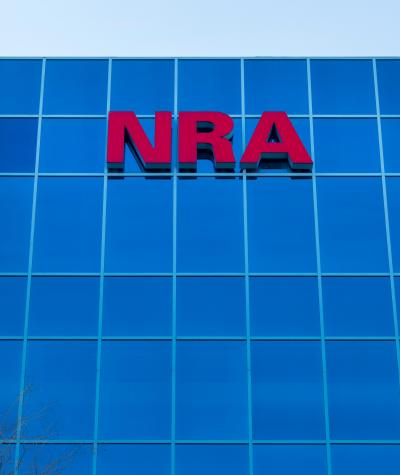Last month, a federal court ordered the Federal Election Commission (FEC) to take action on allegations that the National Rifle Association (NRA) violated federal campaign finance laws. The order, which gave the recalcitrant agency 30 days to comply, is significant, because it makes clear that the FEC cannot abdicate its obligation to enforce federal campaign finance laws.
After years of partisan deadlock at the Commission, it has become routine for the FEC to sit on its hands and allow administrative complaints to languish.
The decision demonstrates that federal courts are willing to force the agency’s hand and sets an important precedent for groups like Campaign Legal Center (CLC) and CLC Action, who seek to challenge the FEC’s inaction.
In 2018, CLC and Giffords filed a series of administrative complaints with the FEC demonstrating that the NRA has engaged in a long-running scheme to coordinate spending on campaign advertisements with at least seven candidates for federal office.
This scheme, which relies on a complex network of shell corporations to hide the coordination from regulators and the public, allowed the NRA to make millions of dollars of illegal, unreported and excessive contributions to federal candidates, including more than $25 million in illegal contributions to former President Donald Trump in 2016.
After the FEC failed to act on the administrative complaints within a reasonable timeframe, CLC Action represented Giffords in a lawsuit against the agency for unlawful delay, which was filed in 2019. In September, a federal court stepped in and ordered the agency to take action on the long-pending complaints by Nov. 1, 2021.
In the wake of the U.S. Supreme Court’s decision in the 2010 case Citizens United v. Federal Election Commission, organizations like the NRA are allowed to spend unlimited amounts of money on political advocacy, but that spending must be independent and cannot be coordinated with a candidate or their campaign.
Unlike independent spending, political spending that is done in coordination with a campaign is treated like a contribution to the candidate and is subject to strict limits.
The Supreme Court has routinely upheld contribution limits on the grounds that large contributions create the risk of actual or apparent corruption.
By funneling its advertising spending through the same vendors used by the campaigns, disguised through a series of shell corporations, the NRA was able to coordinate with the candidates it supports while evading contribution limits and holding itself out as an independent advocate, in violation of federal law.
Organizations like the NRA push the boundaries of anti-corruption laws because they know that the FEC is unlikely to enforce the law against them. In order for the Commission to act, at least four of the six Commissioners must vote to approve any enforcement action.
Due to ideological disputes among the Commissioners, the FEC rarely has the votes to do its job and hold violators accountable. The recent order against the FEC makes clear, however, that if the FEC fails to act, the courts are willing to step in.
If the FEC refuses to take action, it risks opening the door for private actors to sue violators directly to enforce the law, cutting the gridlocked agency out of the picture entirely.
Under federal law, if the FEC fails to act on an administrative complaint and comply with a court order to act, the person who brought the complaint can sue in federal court to hold the violator accountable.
CLC did just that earlier this year, after the FEC failed to act on allegations that Iowa Values, a secret money group dedicated to supporting Iowa Sen. Joni Ernst, violated the law by failing to register as a political committee and disclose its donors.
The right to bring a direct action is rarely triggered. But it is critical to ensuring that federal campaign finance law doesn’t become dead letter, even if the FEC is unwilling or unable to do its job.
That is why victories like the one CLC Action and Giffords won last month against the FEC are so important: they either compel the FEC to do its job and take action to enforce the law against the organizations like the NRA or open the door for private entities to step in and do so in its place.
